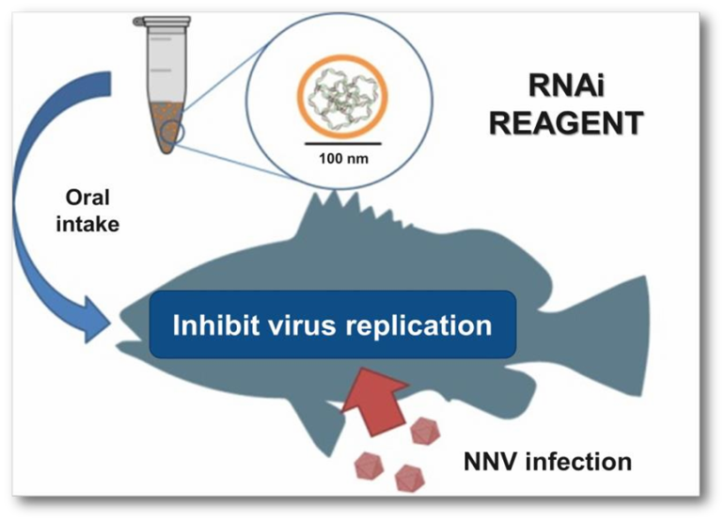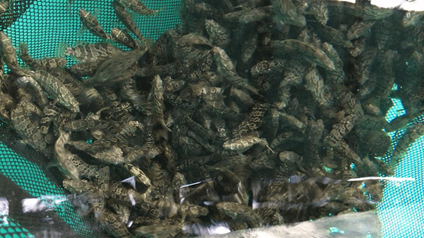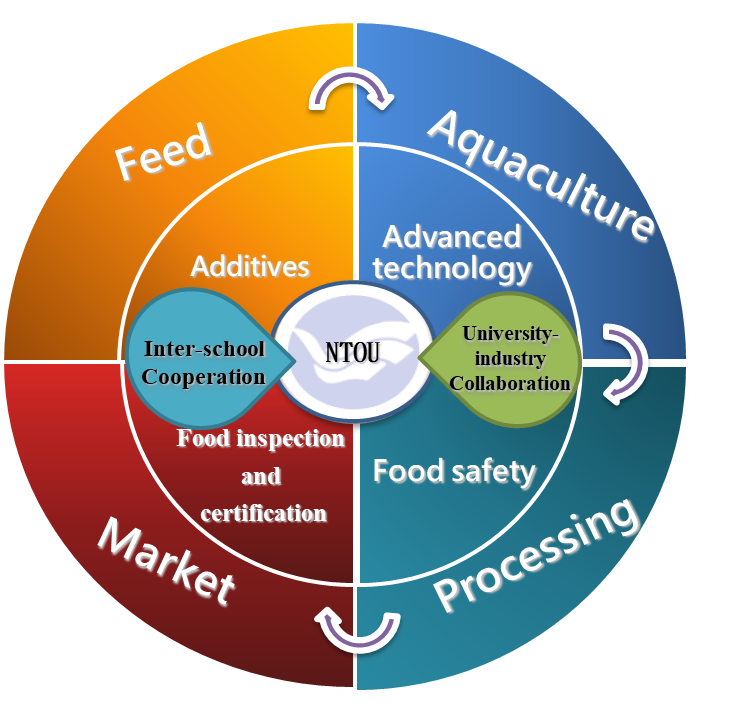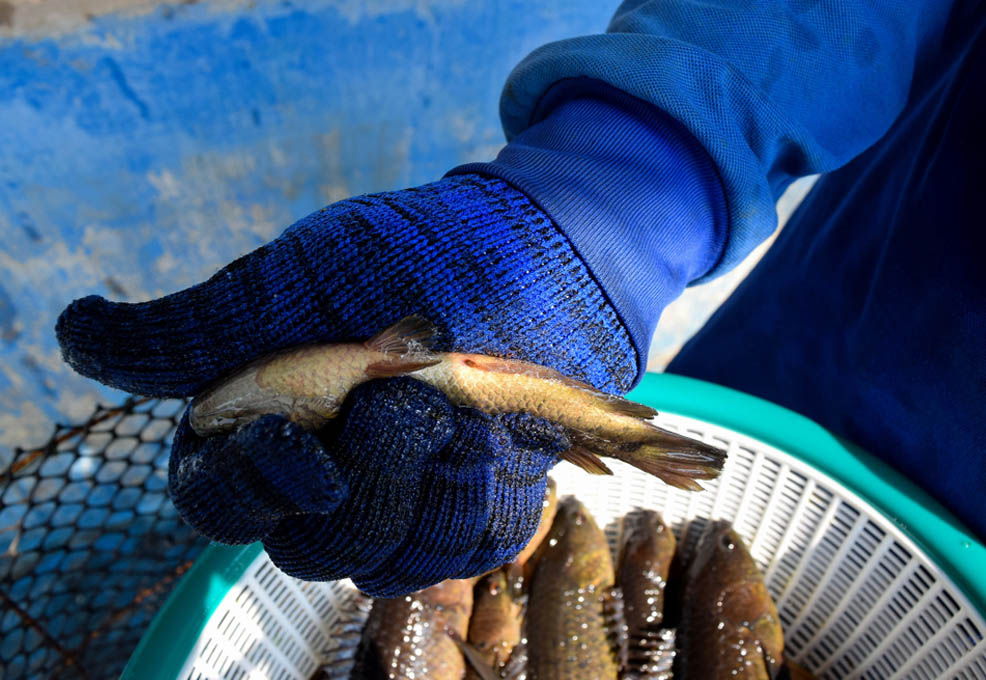Groupers are a common coral reef fish. Grouper aquaculture has already become a major and economically important species in Taiwan, South China and Southeast Asian countries. The seafood markets have high demand of consumption because of its delicious taste and high nutritional components. However, groupers easily suffer from viral diseases which will cause mass mortality. Therefore, finding novel methods to prevent viral infection is the major challenge to ensure the health of aquaculture grouper.
We found that the small interfering RNA (siRNA) could be used as a potential drug for effectively suppressing the replication of viruses. The hybridization of siRNA to viral RNA can cause a degradation process which leads to the specific viral gene functions being inhibited or destroyed. Thus, we wanted to apply the potential of siRNA to control disease in aquaculture fishes, and have developed a novel method to deal with the difficulty of viral diseases in the grouper industry by siRNA technology. This technology can be extended to all of the other aquaculture fish species.
Groupers are common coral reef fish. Grouper aquaculture has already become a major and economically important species in Taiwan, South China and Southeast Asian countries. The seafood markets have high demand of consumption because of its delicious taste and high nutritional components. However, groupers easily suffer from viral diseases which will cause mass mortality. The major viral pathogens have been identified as the nervous necrosis virus (NNV) and iridovirus. Therefore, finding novel methods to prevent viral infection is the major challenge to ensure the health of aquaculture grouper.
NNV is an aquatic virus that can infect varieties of fish larvae and juveniles including those of grouper. The acute NNV infection occurs prior to adaptive immunity developing (before 30-days-post-hatching for grouper larvae). Therefore, it is hard to develop a vaccine strategy against NNV infection. NNV can cause almost 90-100% mortality of grouper juveniles, which leads to great economic loss in Taiwan’s grouper aquaculture industry.
Yet, we found that it might be possible to use the small interfering RNA (siRNA) as a potential drug for effectively suppressing the replication of viruses. The hybridization of siRNA to viral RNA can cause a degradation process which leads to the specific viral gene functions being inhibited or destroyed. Thus, we wanted to apply the potential of siRNA to control disease in aquaculture fishes, and have developed a novel method to deal with the difficulty of the viral diseases in the grouper industry by siRNA technology. This technology can be extended to all the other aquaculture fish species.
In our study, we designed a different siRNA sequence against NNV and verified that it has effective suppression of the replication of NNV either in vitro or in vivo. In our field trial, the successful breeding rate of grouper larvae increased to 27-40% after feeding with siRNA feeding additives, compared to 2-5% in traditional grouper aquaculture. By large-scale experiment, we also tried to feed our siRNA to the grouper juvenile in an outbreak farm. The survival rate also significantly increased from 10% to 50-75%. Those results showed a very high potential of application. By analyzing these valuable experimental data and considering a large number of possible farms to examine it, scientists now have strong confidence that these techniques were established and will be appropriate for the grouper industry in the near future.


Additionally, National Taiwan Ocean University (NTOU), the first industry-university platform which is supported by the Global Research & Industry Alliance (GLORIA) of the Ministry of Science and Technology (MOST) in marine industry, is highly motivated to build bridges across operators with aquaculture, food safety, marine biotechnology, marine science and marine technology. The strategy is to create a “one-stop industrial value chain” by connecting with the international market and leading the domestic industry to advance development of Southeast Asia.

Scientists in Taiwan have successfully developed numerous proper aquaculture techniques such as fish breeding, reproduction, feed, vaccine, automatic monitoring and food safety. In the present situation, the aquaculture species in Southeast Asia lack economic efficiency, although they have a great total aquaculture production with our participation. GLORIA hopes to integrate these techniques in NTOU to assist aquaculture operators in many countries, especially Southeast Asian countries such as Myanmar, Malaysia, Vietnam, India, and Thailand, to drive the development of the aquaculture industry in Taiwan and in Southeast Asia.








